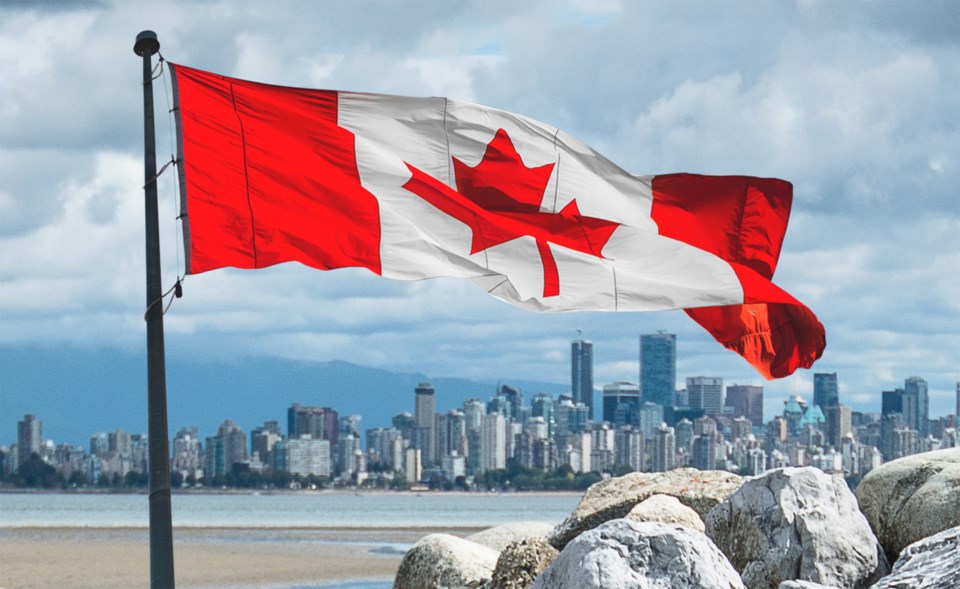While Vancouver, and B.C., aren't part of the original parts of Canada, the west coast city has offered a lot to Canadian culture over the years.
The city's finger prints are all over the country. In sports modern hockey would not look the way it does without contributions from Vancouver 100 years ago. And people who grew up here often top polls about most popular current Canadians or historical figures thanks to Terry Fox, Michael J. Fox and Ryan Reynolds (among others).
Culinary dishes from Vancouver haven't had the same success; California rolls and London fogs are named after places in other countries and are popular, but don't seem to hold the same cache with Canadians as all dressed chips and caesars.
That aside, here are five very Canadian facts about Vancouver.
1. Vancouver is one of the most diverse cities in the world
Canada, as it stands now, is a country with a massive mix of cultures, from the First Nations who've been here since time immemorial to new immigrants arriving daily.
Being such a diverse country comes with its own struggles, but it seems to have worked in Canada as well as anywhere, and it's become a staple of the countries international image.
Vancouver, as one of the largest cities in the country, is emblematic of that and often sits near the top of polls on most diverse cities (though usually just below Toronto) when it comes to tings like newcomers or languages spoken. At the same time the city has a large indigenous population compared to Toronto, which adds to the local vibrancy.
2. A local leaf holds a very Canadian Guinness World Record
The maple leaf is arguably the most Canadian symbol there is (beavers and hockey sticks may be in the conversation).
While the leaf on the flag is based on a sugar maple, which are very much an Eastern Canadian thing, Western Canada has its fair share of maples.
According to the Guinness Book of World Records, the largest ever was found in Richmond; it measured at more than 52 cm wide and long, with a 32 cm stem.
It may hold the record, but it seems massive leaves aren't uncommon on the west coast. A Vancouver Island woman collected even bigger leaves but didn't have them verified with the world record company.
3. Air Canada Flight delayed in Vancouver due to hockey
The 'Golden Goal' as it was dubbed was a big moment in Canada's sporting history, and it happened in Vancouver, but that's pretty well known.
At the same time as it was happening in downtown Vancouver, a flight was due to take off from Vancouver International Airport and head east to Montreal.
However, it was delayed; normally delays annoy passengers, but this time it was the passengers that caused the delay as the plane sat on the tarmac while fans watched the end of the game before boarding.
It was the first time Air Canada had encountered that particular type of delay.
4. The first female cabinet minister in the British Empire
Canada is considered a relatively progressive country when it comes to gender quality and women's rights, often ranking near the top of academic and institutional polls or studies.
Canada, nor B.C. were the first places to allow women to vote, but Mary Ellen Smith did become an important political figure here more than 100 years ago.
She was elected in as an MLA in Vancouver in 1918, a year after women were allowed to vote. In doing so she became the first female MLA in B.C. But she didn't stop there and went on to become, for a short period of time, the first female cabinet minister in the British Empire (back when the British Empire was a more dominant force).
5. O Canada House
O Canada was written in 1880 with French lyrics, but it wasn't the national anthem until 1980.
And while the English lyrics we know now have been formalized for decades, it wasn't the case in the early days of the song.
In 1908 Ewing Buchan took the tune and wrote his own set of lyrics in 1908, which became a popular version, especially in western Canada.
Eventually they were overshadowed by the current words, and have largely been forgotten. Except by a bed-and-breakfast in downtown Vancouver, where Buchan wrote the lyrics.
Buchan's version was much more pro-Britain than our current version.



